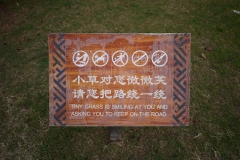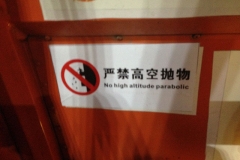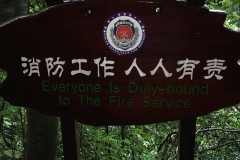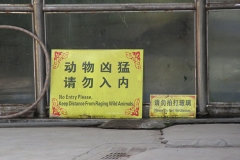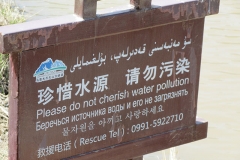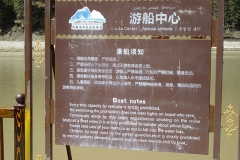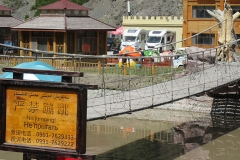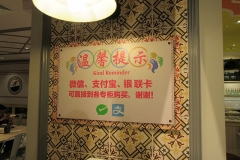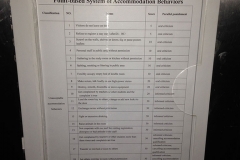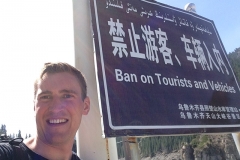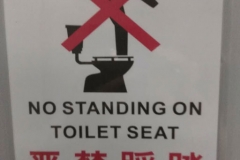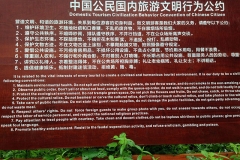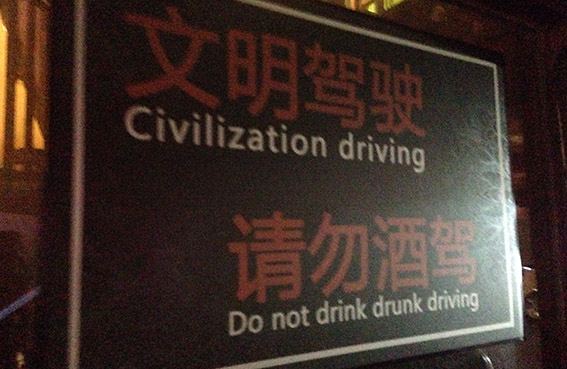
China is a land that is obsessed with rules. Perhaps it stems from its communist roots. Perhaps rule-making is just something to occupy its overactive bureaucracy. Or maybe it’s just that a rapidly developing country of 1.4 billion people has an endless need for regulation.
Whatever the case, China has a lot of rules.
Foreigners in China must register with their local police station within 24 hours of arrival (although most hotels do this for you).
My university accommodation proudly published a list of “Point-based System of Accommodation Behaviors” listing various transgressions, allocating points and “parallel punishments”.
‘Forcibly occupying empty bed of double room’ and ‘gathering in study-room or kitchen without permission’ would earn me 10 points and an ‘oral criticism’ each. I would receive an ‘informed criticism’ for ‘raise animals in room’.
Many public areas would have signs setting out the rules. The Zhangjiajie National Park had 8 paragraphs of rules. Among them:
- Do not walk in parallel;
- Do not force foreign guests to make group photo with you;
- Do not sneeze towards others; and
- Resist feudal superstition activity, and refuse eroticism, gambling and poison.

In March 2018, Beijing authorities reported ordered restaurants in the City’s student district of Wudaoku to limit the number of foreigners in bars to no more than 10.

But here’s the rub: with so many rules, it’s near impossible for authorities to enforce them. I only needed to see how people drive in Beijing to notice that Chinese authorities have a flexible attitude towards most rules. The economy and society would fall apart if they were all strictly enforced. In China, it’s a matter of knowing which rules are negotiable and which were not.
Traffic laws are very negotiable. Political protest laws are not.
One Chinese traffic book explained the rules on crossing a road like this: if you are on your own, obey the law and wait for the road to be clear of traffic. If you are with three or more people, disregard the law and cross immediately.
Liquor laws in Beijing seem to be non-existent. Street drinking is tolerated, if not promoted. I could grab a $2 mojitos from a pop-up street bar and enjoy it on the side-walk!
When friends and I visited the more westernised city of Shanghai we wondered if street drinking was less tolerated there. We got a few beers from a corner store and sat on the grass in a park. It didn’t take long for a security guard to storm over and start shouting at us in Chinese.
‘Damn’ we thought ‘no street drinking here’.
As we got up, the guard started pointing at the footpath.
Then it finally dawned on us…. He was not telling us off for street drinking…… He was telling us off for sitting on the grass. The ‘Thou shalt not enjoy the grass rule’, it turns out, is non-negotiable.

